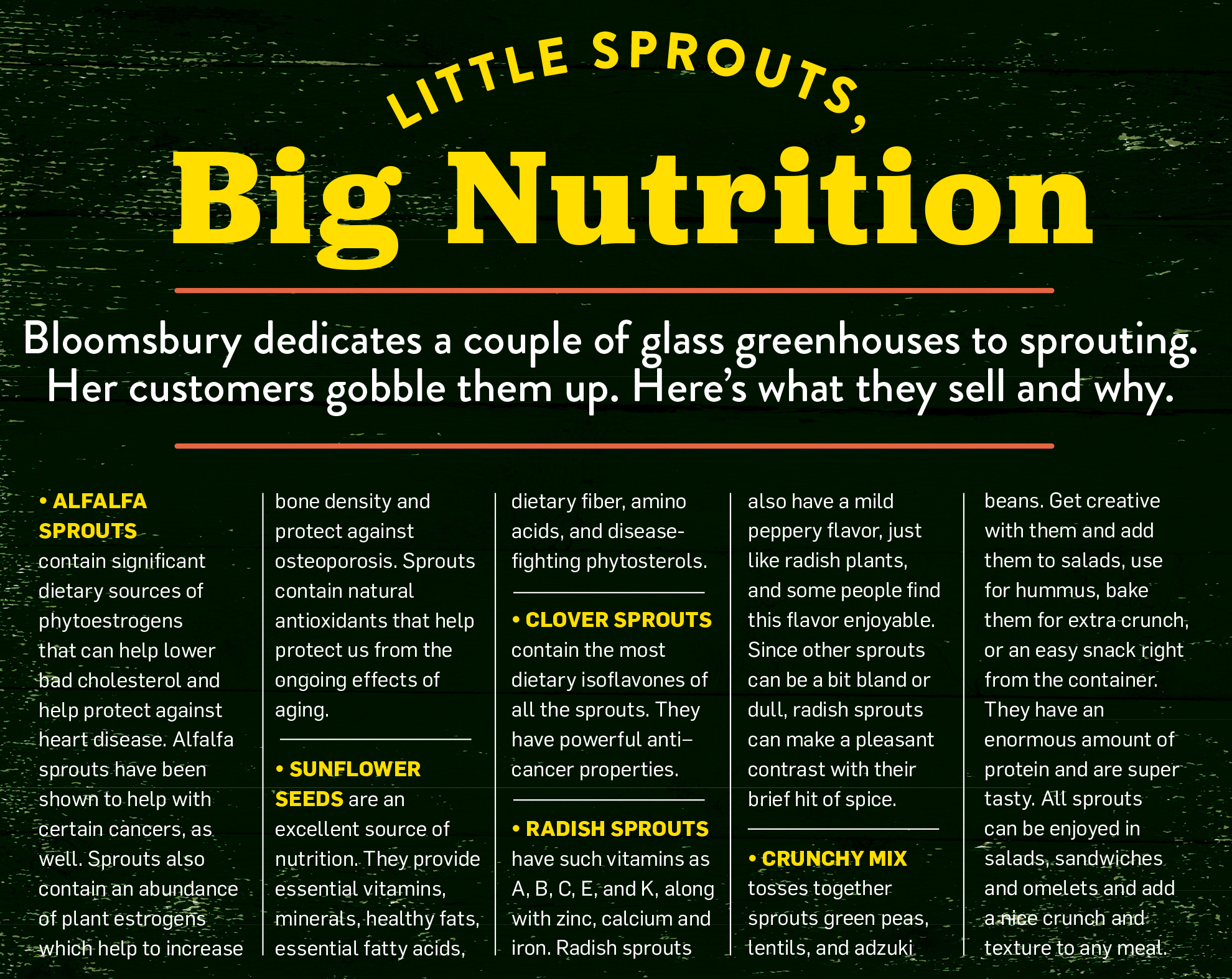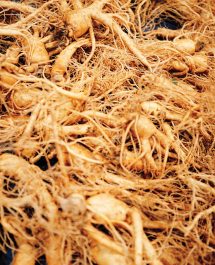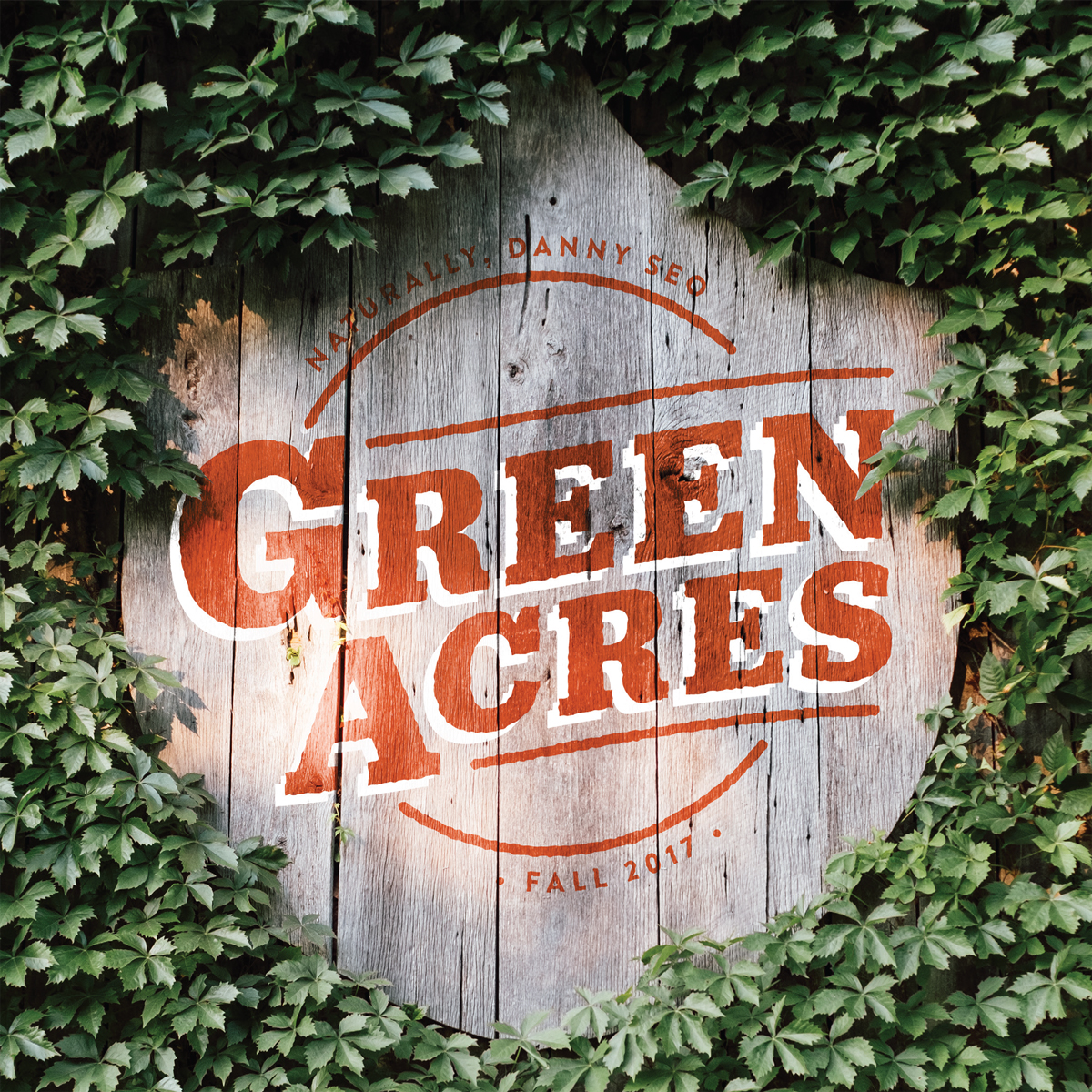 Story by Sandra S. Soria - Photographs by Jonas Jungblut
Story by Sandra S. Soria - Photographs by Jonas Jungblut Lauren Palmer didn’t set out to be a farmer, She earned a degree in social work and started her professional life in that field, employed by a hospital. At the same time, she interned part-time at a small farm that was doing farmer’s market style growing. This hybrid approach to work made her realize that the two professions weren’t so different from each other.
“I think it’s the social worker in me,” she says, “but I love the idea of feeding people. Then there’s the circle of life aspect. We start a seed, plant it, grow it, harvest it and take it to market. These are the things that drive me. I really can’t imagine a better way of life.”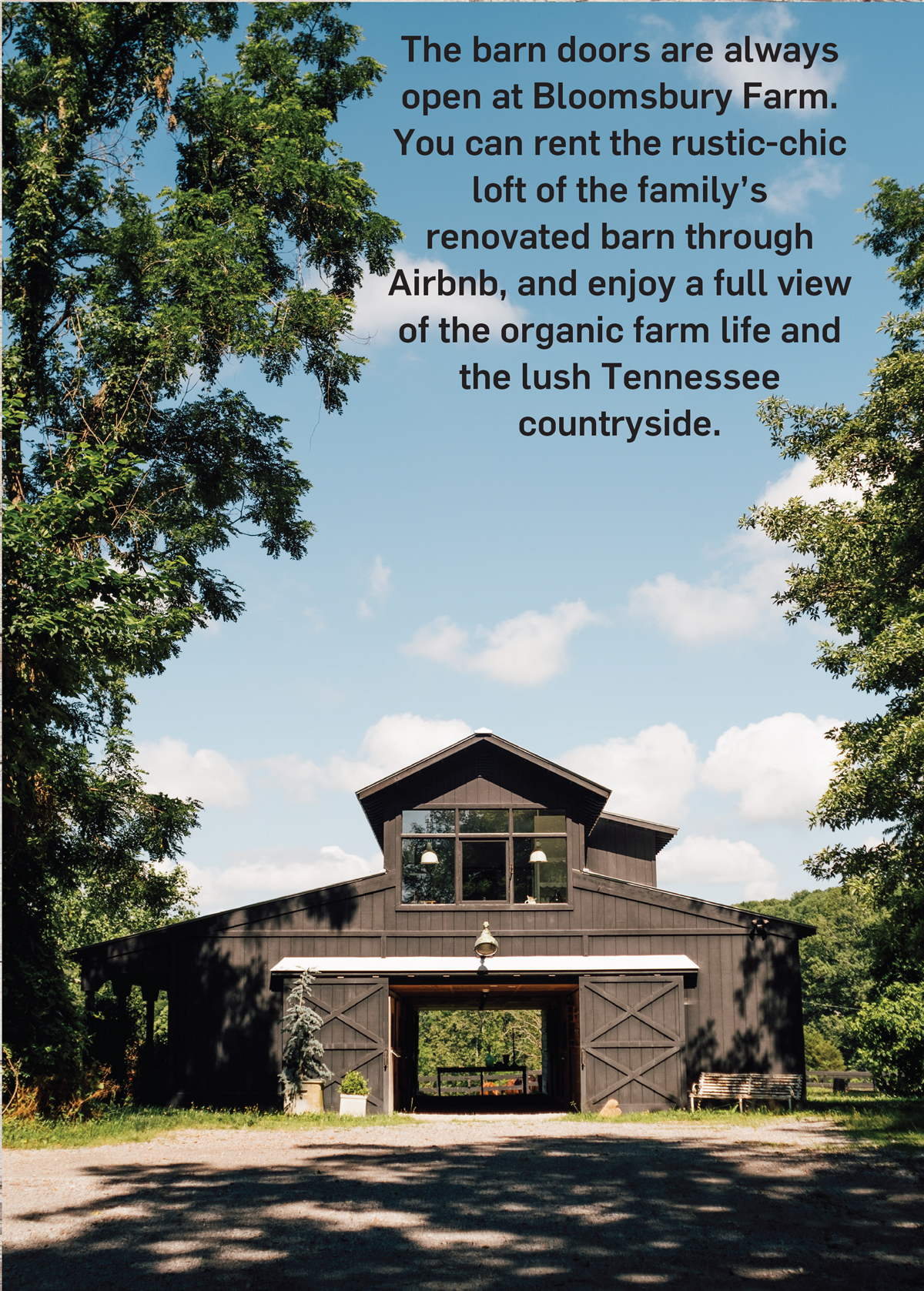
Though her business is only eight years old, Lauren’s roots in farming and horticulture run deep. Her grandparents owned a dairy farm in the area. And her father, Myron, is a retired landscaper who would regularly take his daughter to work with him. Young Lauren totally dug it. “I really think I got the growing bug from him,” she says.
Her parents own the 400-acre spread where Bloomsbury is based. They purchased the spread in increments, starting when Lauren was in middle school. The land is mostly rolling, somewhat rocky and about half-timber. But now, interspersed in the wildness, are about 30 acres that are tilled into tidy rows, ready to grow everything from okra to endive. “Because it’s not the typical farmland,” says Lauren, “we’re farming on a two-acre strip here and a five-acre plot there. And we have all the sections named which helps keep it all straight. Everybody knows when it’s time to go out to harvest in Rocky Top, for instance. We do our thing there and move from field to field.”
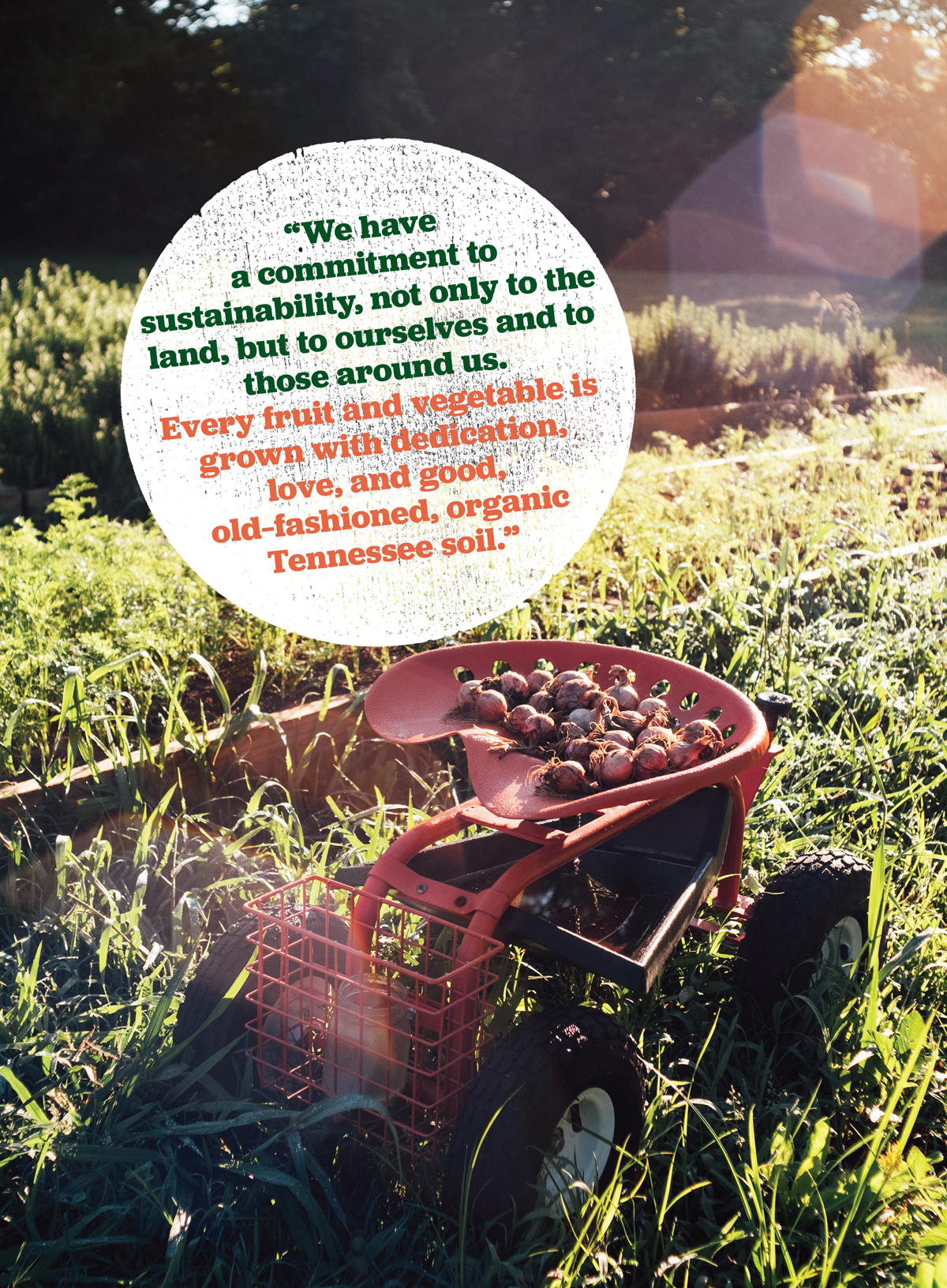 Much of the Bloomsbury produce is grown in those open fields of organic Tennessee soil, irrigated by three wells and roving trucks that haul the water where it’s needed. To extend the season and house her sprouts, she has two glass greenhouses and four plastic-clad hoop houses. About 20 employees keep the farm buzzing, mostly part-time and seasonal workers. But there are also a couple of full-timers, such as a driver that carries the goods to farmer’s markets and restaurants, and an organic certification expert who makes sure the farm maintains the exacting food safety practices—and reams of records—that the USDA auditors demand.
Much of the Bloomsbury produce is grown in those open fields of organic Tennessee soil, irrigated by three wells and roving trucks that haul the water where it’s needed. To extend the season and house her sprouts, she has two glass greenhouses and four plastic-clad hoop houses. About 20 employees keep the farm buzzing, mostly part-time and seasonal workers. But there are also a couple of full-timers, such as a driver that carries the goods to farmer’s markets and restaurants, and an organic certification expert who makes sure the farm maintains the exacting food safety practices—and reams of records—that the USDA auditors demand.
In addition to the standard organic certification, Bloomsbury produce carries GAP (Good Agricultural Practices) certification. “The big guys—like a Sysco and Fresh Point—require that extra auditor to come in,” Lauren says. “Plus, I’m a ‘sprouter,’ so that raises some red flags to food safety people. No other farm at any of the markets around here has that double certification, so it’s an extra measure of confidence in what we sell.”
Besides the growing operation at Bloomsbury, Lauren rents out the property as a venue for farm dinners or weddings a few times a year. “I don’t ever want consider us a wedding venue,” Lauren says. “We’re a farm first, but I am honored when people want to share that day with us.” And the family rents their chic-country loft, built on top of an old horse barn, as an Airbnb. “We don’t keep the horses in there now,” Lauren says. “We tried to keep them in there because we thought it was cool, but it got a little stinky for the guests.”
Along with the herd of five horses (who graze nearby but are housed elsewhere), the Bloomsbury menagerie includes chickens and geese. “They’re mostly yard art,” Lauren says. “Our employees take the eggs and we might sell a few at the farmer’s market.”




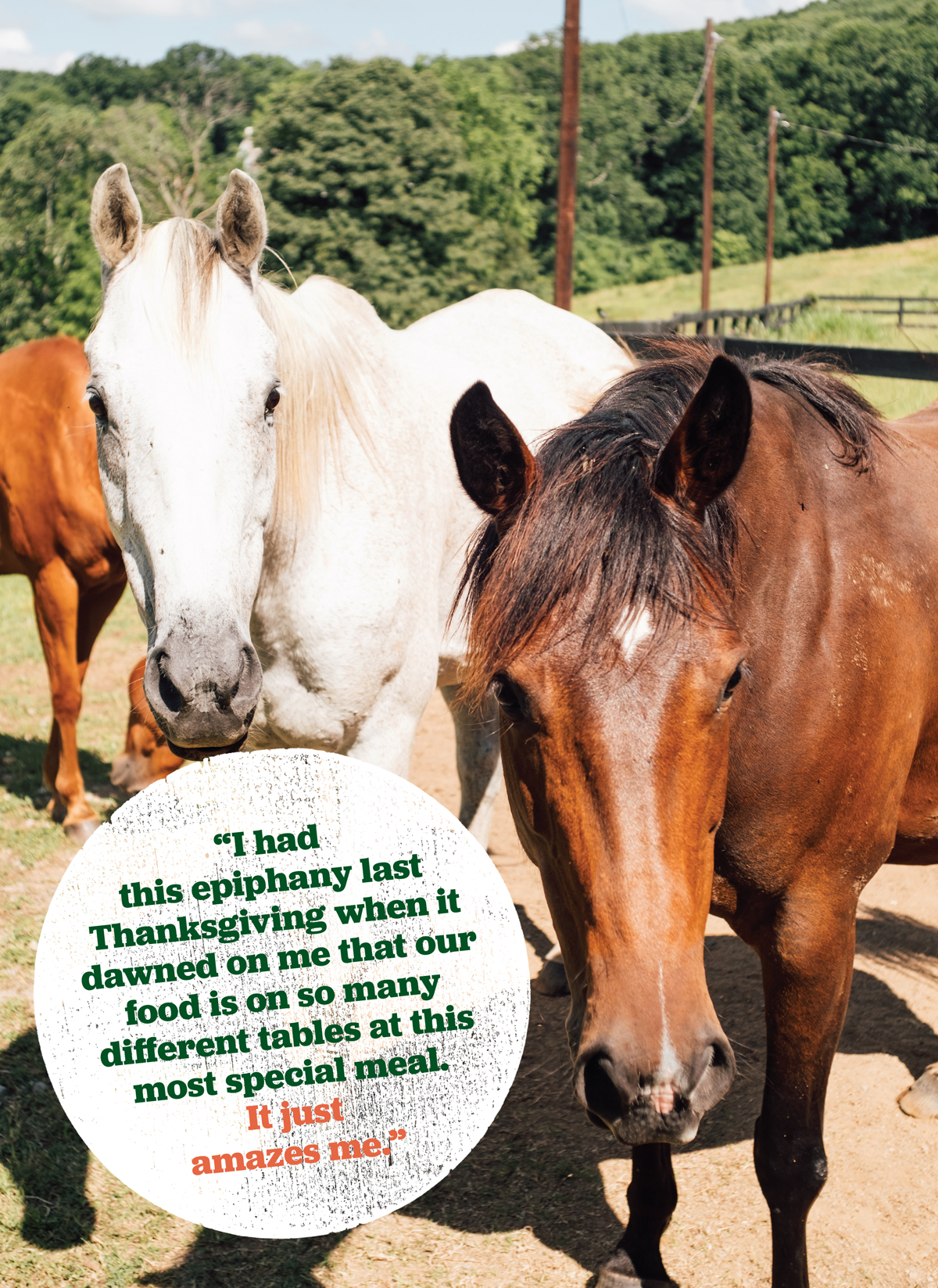
Though she has a reliable team to keep all the plates spinning, the farm is also very much a family operation, and a multigenerational one at that. Myron maintains the property and, according to Lauren, “is a sounding board and font of wisdom for all things farm and growing.” He also inspired the farm’s name with his longstanding family mantra: “Bloom where you are planted.” Her mother, Teresa, a healthcare professional, is always available “to spread the love and support around,” says Lauren. The joy of working the land—and of farm management—is also being cultivated in her daughter, Palmer Jennings, who hangs out with mom a couple of afternoons a week and at farmer’s markets. “She’s three and a half,” Lauren says, “and a real whippersnapper who’s pretty sure she’s the boss.”
But this 34-year-old farmer considers her extended family to include not only her work team, but the community of people she feeds through the Bloomsbury booths at four farmer’s markets in the area and through a few hundred CSA memberships as well. Then there are the chefs who serve up Bloomsbury bounty at top restaurants in the area, including Nashville’s award-laden Husk. “I know most of the people that are getting our food,” Lauren says. “I know them and I know their kids. It’s a full circle and one of the cool rewards of doing this work.”
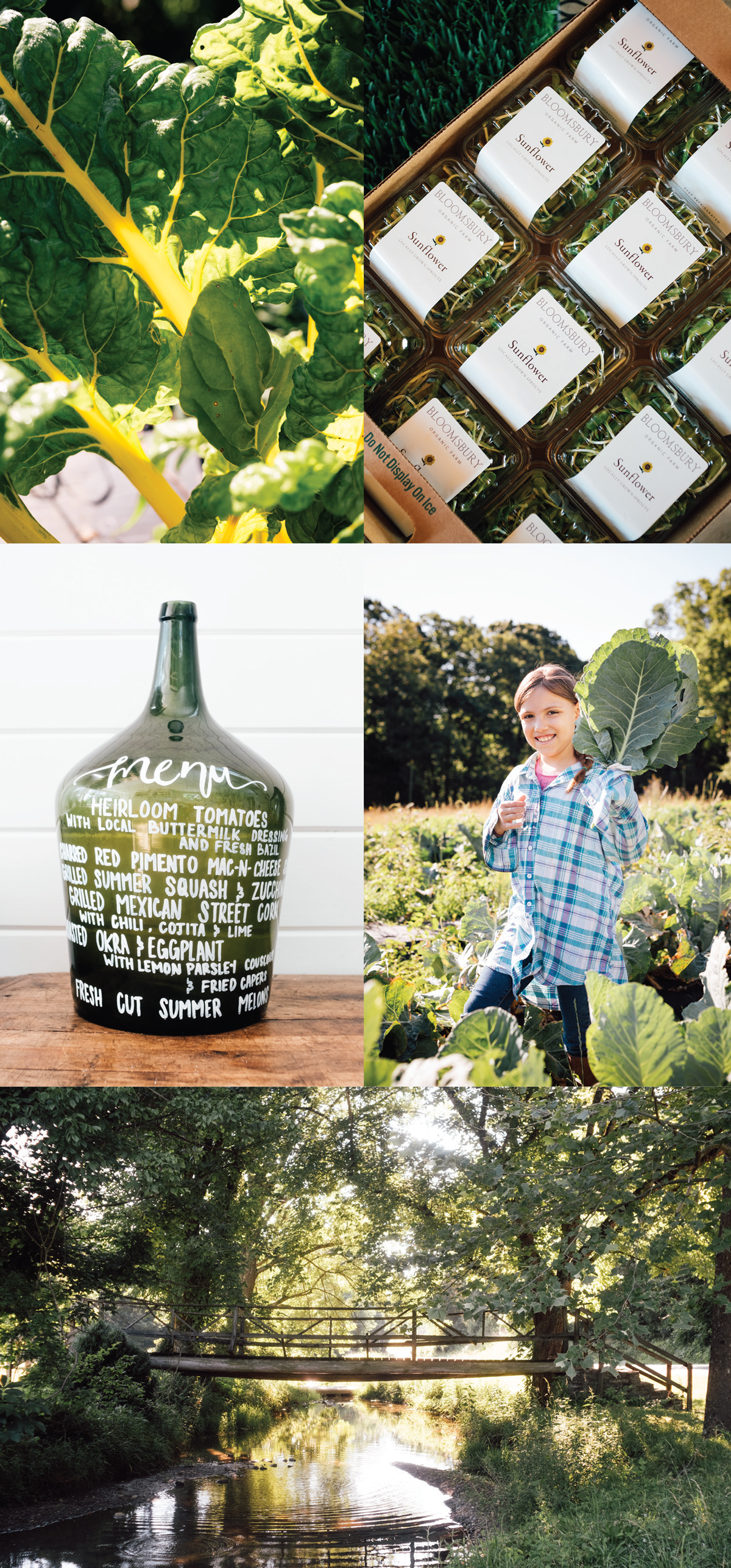 A network of fellow farmers is also in her circle. Lauren is part of the new crop of young farmers who are digging back to old-fashioned ways of making a living in agriculture—those that cultivate smaller fields free of chemicals, stay closely intertwined with their customers, and remain ready to help out the guy—or gal—down the road. “There has been a burst of young people who want to grow and I just love that,” says Lauren. “It’s a welcoming, cooperative community from my experience. We all just chat it up, or it’ll be like, my tractor is out so I’ll just borrow the neighbor’s until I’m up and running again.”
A network of fellow farmers is also in her circle. Lauren is part of the new crop of young farmers who are digging back to old-fashioned ways of making a living in agriculture—those that cultivate smaller fields free of chemicals, stay closely intertwined with their customers, and remain ready to help out the guy—or gal—down the road. “There has been a burst of young people who want to grow and I just love that,” says Lauren. “It’s a welcoming, cooperative community from my experience. We all just chat it up, or it’ll be like, my tractor is out so I’ll just borrow the neighbor’s until I’m up and running again.”
To learn more about Bloomsbury Farm or book a stay there, click over to bloomsburyfarms.com.